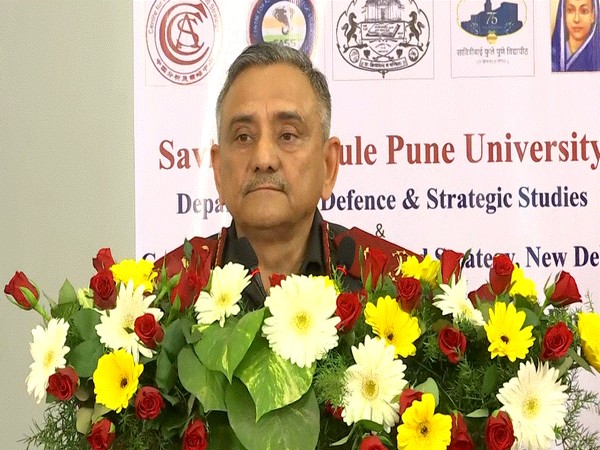Chief of Defence Staff General Anil Chauhan on Monday called unsettled borders with China and the rise of China as “the most formidable challenge” that India and Indian armed forces will face in the “foreseeable future.”
In his address at the “3rd Strategic and Security Dialogue on Rise of China and its Implications for the World” event in Pune, General Anil Chauhan said, “The challenge we face today is unsettled borders. The ancient frontiers of India started taking shape of firm borders under the British, but they could not get the legitimacy of international borders on independence thus we inherited disputed borders. The occupation of Tibet by China, made them a new neighbor, and a partition of India created a new nation that thrived on hostility and hatred towards us.”
The event has been organised by the Department of Defence and Strategic Studies at Savitribai Phule Pune University. General Chauhan called unsettled borders a challenge that India faces today.
General Chauhan said, “Today India has disputed borders with both our neighbours. Disputes followed by conflicts have led to the emergence of terms like line of actual control, line of control and actual ground position line. The unsettled borders with China and the rise of China will remain the most formidable challenge that India and Indian armed forces will face in the foreseeable future.”
He stated that armed forces need to maintain the legitimacy of India’s claims during peacetime on the disputed borders and stressed that it requires astute handling of China’s People’s Liberation Army (PLA) at all friction points. General Chauhan said that both sides need to operate within the ambit rules of engagements.
“The armed forces need to maintain the legitimacy of our claims during the peacetime on this disputed borders. This will require very astute handling of the PLA at all the friction points, calibrated firmness, and both sides to operate within the ambit of agreed rules of engagements. Like all disputed borders, there will be a tendency by the adversary to create new facts, or markers, toponomy or cartographic aggression, or to create a new narrative. This again will have to be countered collectively by all of us at all levels, that would include academicians, strategists, thinkers, students, everyone has to do it together, General Anil Chauhan said.
CDS General Anil Chauhan said that relations between the two nations cannot be viewed from a binary kind of perspective. Stressing that the rise of China affects other nations as well, he called for looking at like-minded nations for equitable balance.
Referring to External Affairs Minister S Jaishankar’s recent comment about ties between India and China made during a TV show, General Chauhan said, “Day before yesterday, EAM said, ‘there is more to the Sino-India relation than the border disputes.’ Similarly, in an increasingly interconnected world, Sino-India relations cannot be viewed from a binary kind of perspective. The rise of China affects other nations as well and we must look at like-minded nations for equitable balance while remaining cognizant of the fact as a popular idiom says that one must be prepared to fight its own battle.”
Regarding technological advancements, General Chauhan cautioned against allowing a significant technological gap to emerge between India and its immediate adversaries, emphasizing its potential adverse consequences.
“Technology denial regimes existed in the past, but what we are witnessing now is a race to retain technological edge. India cannot afford the emergence of a major technological gap between us and our immediate adversaries, and that would be fatal for us,” General Chauhan said.
Earlier on March 12, India sent out a strong rebuttal to China for the latter’s comments on Prime Minister Narendra Modi’s visit to Arunachal Pradesh stating that the northeastern State will always be “an integral and inalienable part of India”.
In a statement, the Ministry of External Affairs (MEA) asserted that China’s objection to visits by Indian leaders or India’s developmental projects “does not stand to reason”.
“We reject the comments made by the Chinese side regarding the visit of the Prime Minister to Arunachal Pradesh. Indian leaders visit Arunachal Pradesh from time to time, as they visit other States of India. Objecting to such visits or India’s developmental projects does not stand to reason,” MEA official spokesperson Randhir Jaiswal said.
“Further, it will not change the reality that the State of Arunachal Pradesh was, is, and will always be an integral and inalienable part of India. The Chinese side has been made aware of this consistent position on several occasions,” he added.
Jaiswal’s statement came after Chinese Foreign Ministry Spokesperson Wang Wenbin during a press briefing, said that China “strongly deplores and firmly opposes” Prime Minister Narendra Modi’s visit to the “East Section of the China-India boundary” and has raised concerns with India. PM Modi had virtually inaugurated the strategic Sela Tunnel during an event held in Arunachal Pradesh’s capital, Itanagar, on March 9.-ANI


